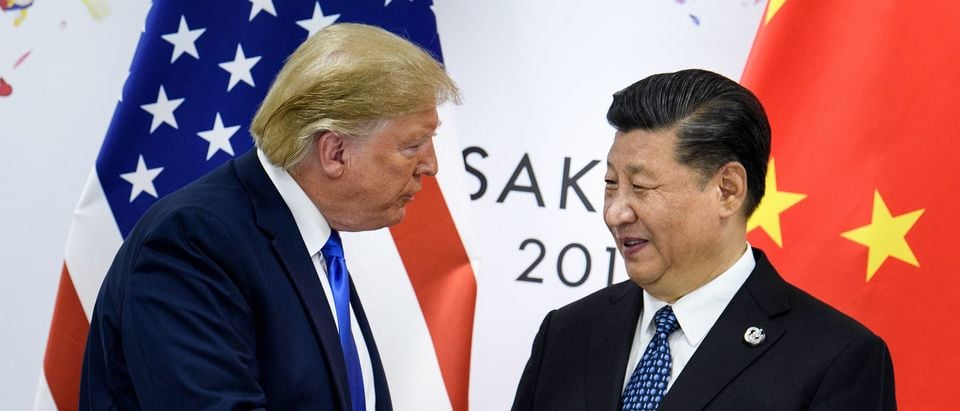The People’s Republic of China is a deadbeat. It owes thousands of American citizens billions of dollars and refuses to pay, or even negotiate.
One of us is a lifelong Democrat, the other a dedicated Republican. We agree on very little. But we are in full agreement that China needs to stand by this obligation, and that it should not be considered a reliable borrower or trading partner until it does. And we both give President Trump credit for actively supporting this position.
The debt in question is long-standing. Between the fall of the Chinese empire in 1941 and the Communist takeover in 1949, the Chinese government issued bonds on capital markets to finance its economic infrastructure, such as railroads. Investors, including many Americans, bought these bonds as sovereign debt obligations of China. Today, thousands of such bonds are owned, often through inheritance, by some 20,000 U.S. citizens, scattered around the country.
In 1949, the new government in China proclaimed itself “one China” and asserted all the sovereign rights of its predecessor. Yet it selectively repudiates its sovereign obligations. The benefits of those infrastructure and security improvements still stand, but the funds to pay for them, extracted from other people’s pockets, were never repaid.
It is a settled principle of international law that when a successor government assumes power it is bound by its predecessor’s legal and financial commitments. Without this “successor state” doctrine, the international trading and financial systems would be in shambles. Yet the PRC chooses to ignore some of its predecessor’s responsibilities, while expecting to be treated as if it were in good standing, as the only China, across the board.
Age of the bonds, over 90 percent of which were designed to mature as late as the 1960s, cannot be disqualifying; otherwise countries could choose simply to ignore payment demands and wait out their debts. Indeed, in 1987 the PRC actually confirmed that these bonds are valid, by paying off the same instruments held by citizens of the United Kingdom. That put the PRC in selective default.
That should have consequences. Recently, when Venezuela and Argentina contemplated not paying sovereign debt, they quickly learned that doing so would lose them access to capital markets worldwide. Conversely, settling the bonds held in the U.K. gained China access to that capital market. Why should China have access to the U.S. capital market, where 65 percent of the world’s capital is raised, while it stiffs bondholders here?
The U.K. example is instructive in another way. Bondholders there, as here, were ordinary citizens, not financial titans with deep pockets to finance litigation. So, the British government stepped up on behalf of its citizen bondholders to reach the 1987 settlement. For a number of years after World War II the U.S. government took on a similar responsibility, through the Foreign Claims Settlement Commission and various successor bodies — but it never negotiated on behalf of citizens who held Chinese bonds, and those structures withered.
Instead, the U.S. government’s position has ranged from active hostility to feckless sympathy and neglect. In 1983, a U.S. district court in Alabama issued a default judgment against China on bonds of similar vintage, but the then-secretary of state intervened on foreign policy grounds and the judgment was vacated.
That may no longer be our government’s position, but it doesn’t much matter, because foreign policy considerations have since been eclipsed by the private sector’s vision of China as a vast market and cheap supplier. So the bondholders have remained in the back seat.
Perhaps that is changing. President Trump has decided to lead on this issue; reports indicate the U.S. government has come to regard the bonds as a source of leverage in ongoing trade negotiations. Even more to the point, they could be understood as a vehicle for actually reducing the national debt, by acquiring bonds directly from their owners at a discount and then proffering them to China to pay off increments of U.S. treasury bonds before maturity or as they come due.
At a minimum, pursuit of measures such as these could put the onus on the PRC, where it belongs, to come very quickly to the table with American bondholders, with the aim of becoming a mature financial and trading partner not just in assertion, but in fact.
John Holum served as under secretary of state in the Clinton administration. Peter Huessy is the president of Geostrategic Analysis in Potomac, Maryland. Both authors serve as advisers to the American Bondholders Foundation, LLC.
The views and opinions expressed in this commentary are those of the author and do not reflect the official position of The Daily Caller.


